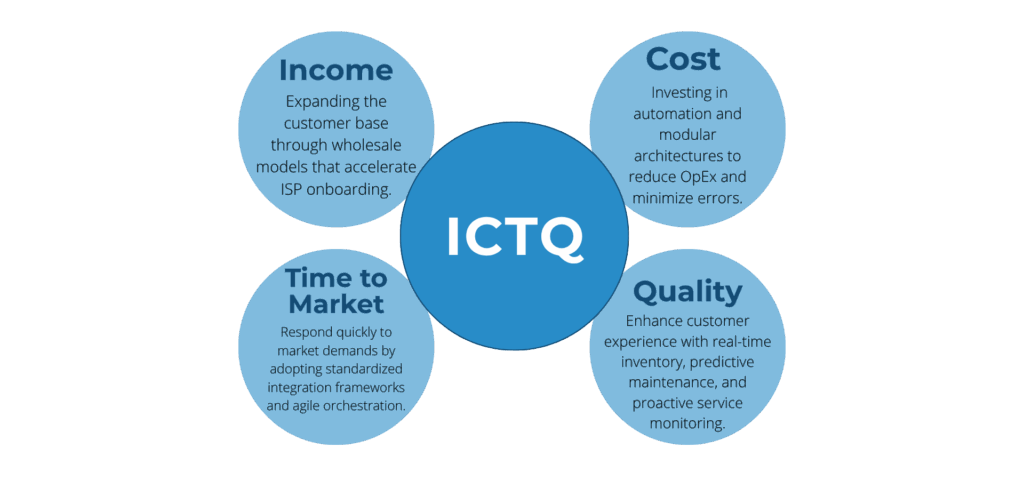From Network to Sustainable Profitability
FTTH Wholesale: Streamlining Operations
Key Challenges in the European FTTH Wholesale Market
The FTTH market has shifted its focus from network deployment to service adoption and Return on Investment (ROI). In this context, wholesale operators (NetCos) face operational and architectural challenges that directly impact growth and profitability.
Our Approach: The ICTQ Strategy
To navigate the complexities of the wholesale market and achieve growth targets, Optare utilizes the ICTQ framework (Income, Cost, Time-to-Market, Quality) to align technology strategy with business goals.

The Solutions: Architecture for Wholesale Agility
The TM Forum’s Open Digital Architecture (ODA) is the paradigm shift that allows operators to move away from monolithic systems to a digitized, automated, and partner-centric framework. Optare Solutions designs and implements this architecture for FTTH wholesale operations.
Puntos clave
- Catalog-Based Orchestration (SOM/ROM): Centralizes the definition of products, services, and resources. This allows operators to quickly simplify new service offerings and manage multi-service deliveries.
- Microservices Architecture: Enables the implementation of modular, plug-and-play components. This flexibility facilitates the rapid deployment of new services without requiring a full system overhaul.
- Zero-Touch Interoperability (Automation): Promotes seamless integration in multi-vendor environments, reducing the time to onboard new Internet Network Operators (INOs) and automating provisioning.
- No Vendor Lock-In: By promoting standardized architectures and open interfaces, ODA ensures operators can incorporate the best solutions, maintaining customization and independence.
Measurable impact
Our knowledge on FTTH Wholesale
Access our key materials to explore the market challenges and the ODA architectural solution.
Check out our webinar on FTTH Wholesale
In this webinar, experts from Optare Solutions and Adamo analize the key challenges of the FTTH market and how and OSS architecture based on TMF ODA can improve efficiency and scalability.
Ready to transform your operations?
Don’t let fragmented work limit your growth goals
